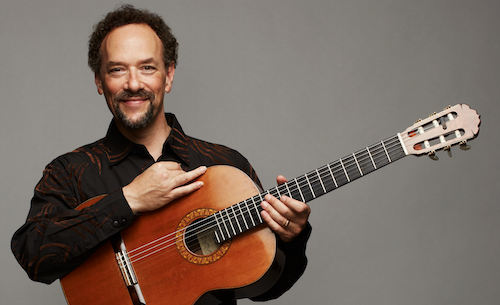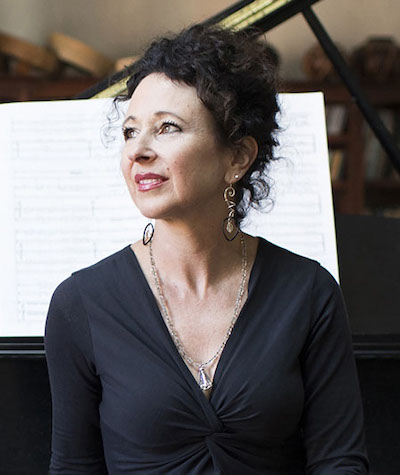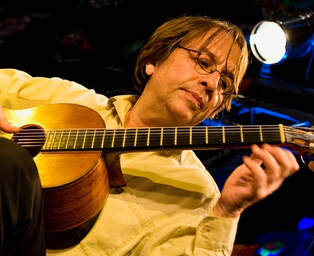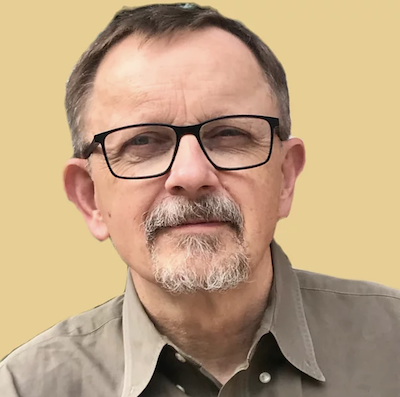by Jarrett Hoffman

On Saturday, May 14 at 7:30 pm at Plymouth Church, Kanengiser will conclude the Cleveland Classical Guitar Society’s 2021-2022 International Series with a program titled “Global Guitar.” Tickets are available here.
One important element in the program is Kanengiser’s ongoing Diaspora Project, in which he commissions new works dedicated to groups of people who have left their ancestral homelands behind. That project will be represented by three pieces on Saturday, including a premiere by Andrea Clearfield.

Among the songs that Clearfield cataloged was a tribute to the dranyen, a three-stringed, plucked instrument traditional to the region around the Himalayas. The melody to that song became a starting point for the piece that will be premiered on Saturday, titled Reflections on the Life of the Dranyen.
“It’s very heartfelt, especially the ending.” Kanengiser said. “It closes with this tapping, like a faint heartbeat, that’s meant to invoke this culture that’s so much in peril right now.”
Another work born out of the Diaspora Project is Golfam Khayam’s Lost Land. “She’s an incredibly talented guitarist-composer from Tehran,” Kanengiser said, noting that he was introduced to her through another guitarist-composer, his friend — and her former teacher — Dušan Bogdanović.

Kanengiser also said that the piece draws on Khayam’s expertise with Persian ornamentation and improvisation. “It uses a lot of filigree over the melody to imitate that melismatic style, and it’s very much inspired by kanun playing,” he said, referencing that string instrument popular in the Middle East and beyond.

In that piece, Bogdanović leans into one of his favorite compositional techniques. “He’s just crazy about polymeter,” Kanengiser said, noting the composer’s research into the rhythms of traditional African drumming. “So this piece has one thing going on in one voice, and another thing in another voice — happily coexisting but almost unrelated to each other. It’s really delightful.”
What will stick out to audiences right away is the sound of the prepared guitar, used for the outer movements in order to imitate the sound of the West African, 22-stringed kora. “It’s this simple little trick,” Kanengiser said. “You take a staple — a normal household staple — and bend the corners of it a little bit so it clips two strings together. Then when you pluck one string, it kind of clangs the other one, and you get this wonderful sound.”

The bootlegger in question? Johanson’s maternal grandfather, who used to tell him stories about his escapades hiding booze and running from the law — as referenced in the fourth movement, “Head for the Hills.”
“This piece really tells a story,” Kanengiser said. “But he also very cleverly mixes Irish fiddle tunes with Appalachian music — and there’s not that much difference between them actually.”
Along with the piece, Johanson also included some kind words about Kanengiser. “He wrote a really touching thing where he calls me a narrative guitarist. His idea is that my strong suit is really telling a story with my playing.”
A good match, then, for a bootlegger’s tale.
Saturday’s program also includes works by Joaquín Turina, John Duarte, Leo Brouwer, and Brian Head — details here.
On Friday, May 13 at 7:00 pm, Kanengiser will present a master class in the Dolen Science Center Reading Room at John Carroll University. The class is open to the public.
Published on ClevelandClassical.com May 11, 2022.
Click here for a printable copy of this article



